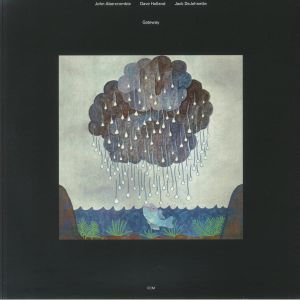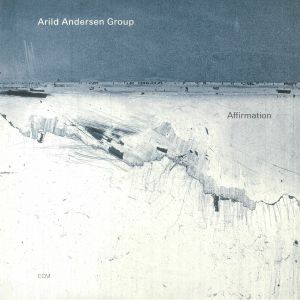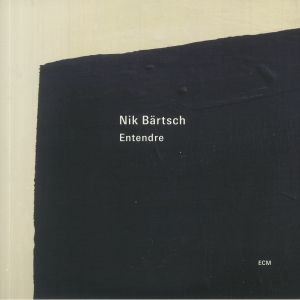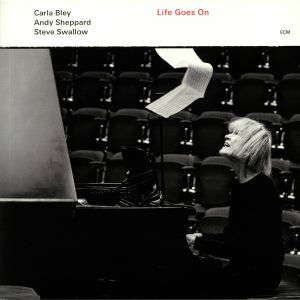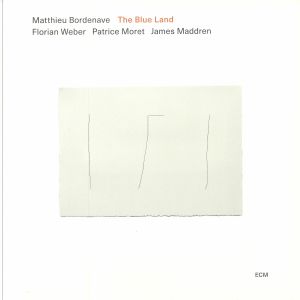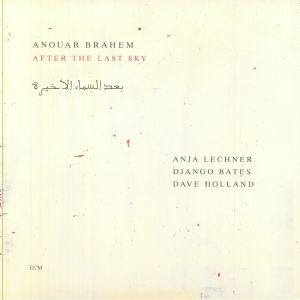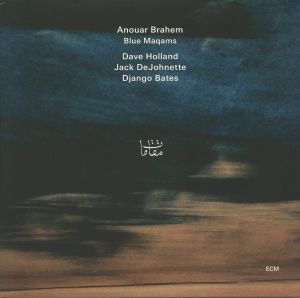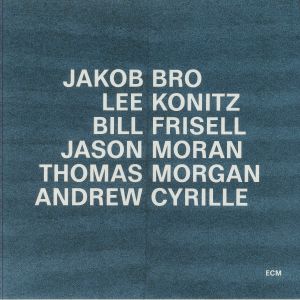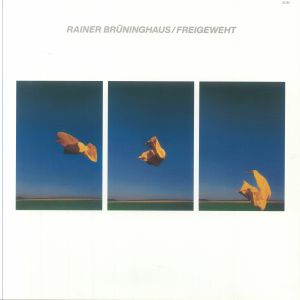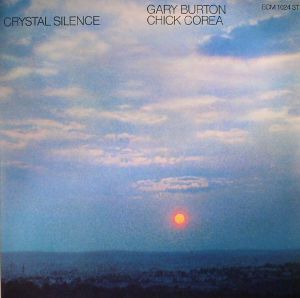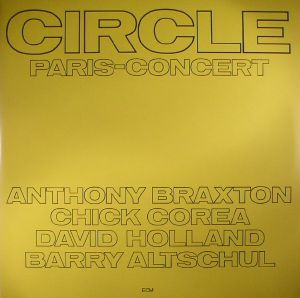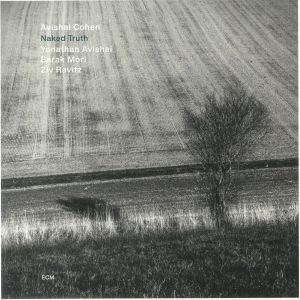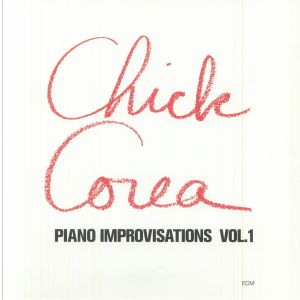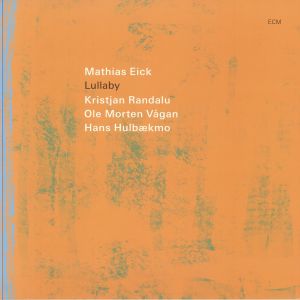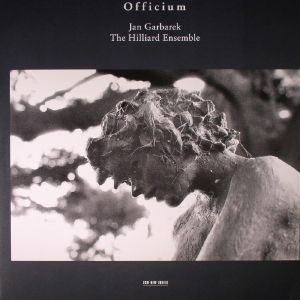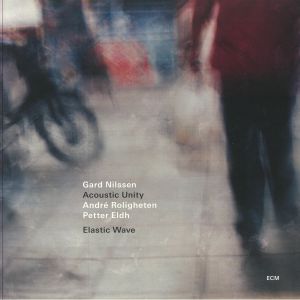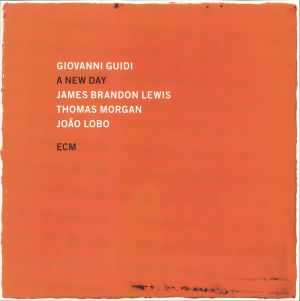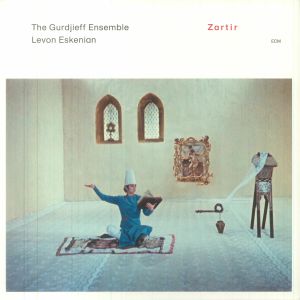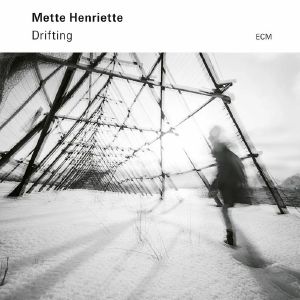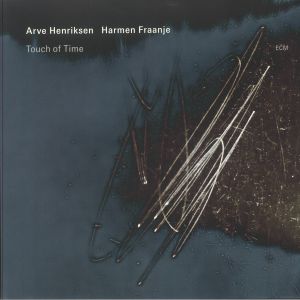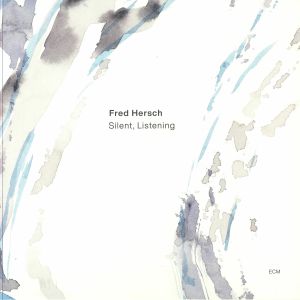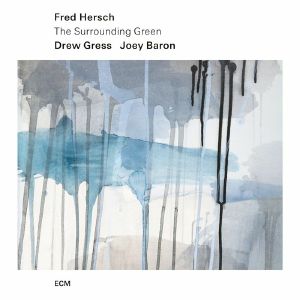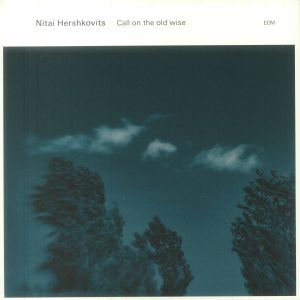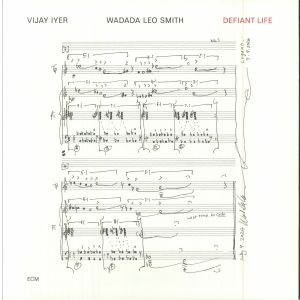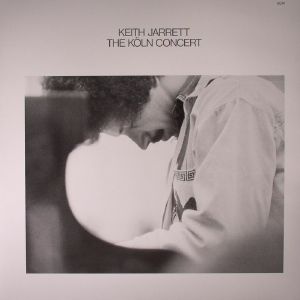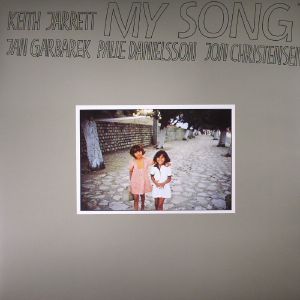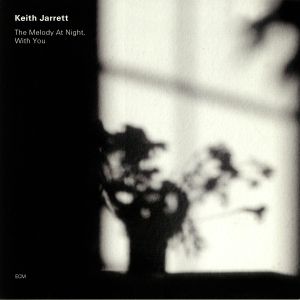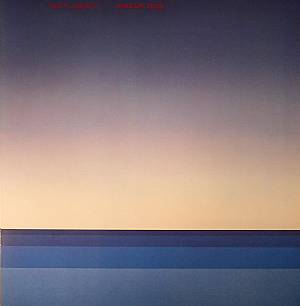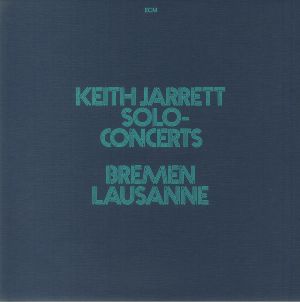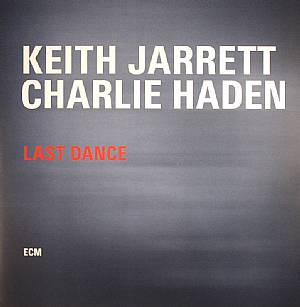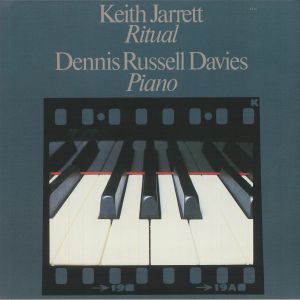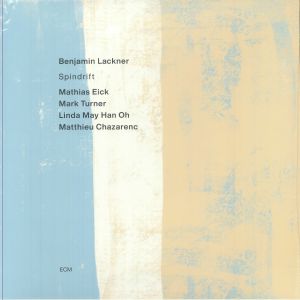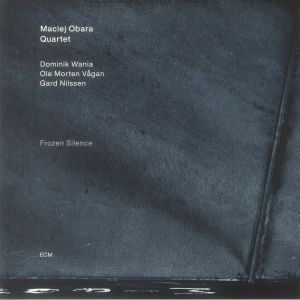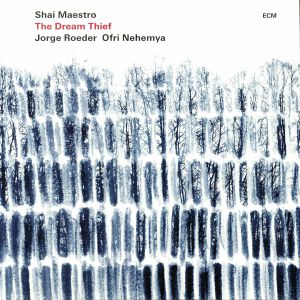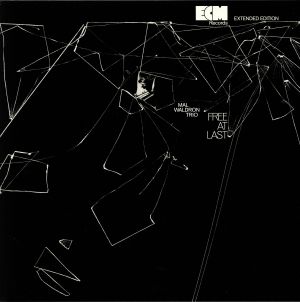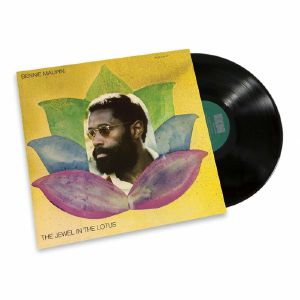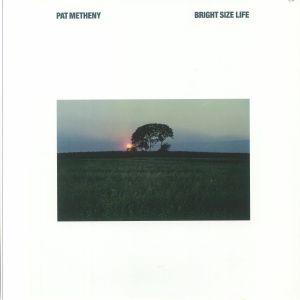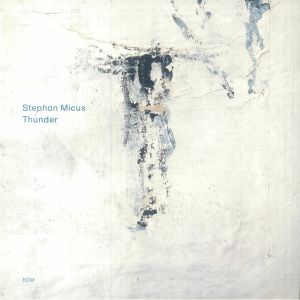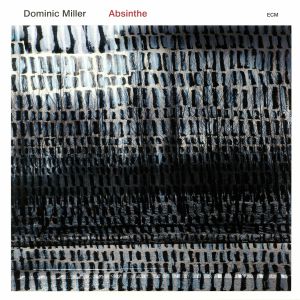Back catalogue: All genres
Juno's full catalogue of All genres
专辑
Review: Gateway by John Abercrombie is a captivating journey through the realms of modern jazz fusion, featuring Abercrombie's masterful guitar work alongside Dave Holland's silky-smooth bass and Jack DeJohnette's dynamic drumming. Seamlessly blends traditional and progressive jazz elements, Abercrombie's compositions showcase intricate band interplay, with tracks like 'May Dance' and 'Jamala' highlighting the trio's ability to shape melodies around each other's instrumentation. Holland's bass provides a solid foundation, grounding Abercrombie's exploratory guitar solos, while DeJohnette's drumming adds texture and depth to the ensemble. Abercrombie's experimental approach to guitar sounds, as seen in 'Sorcery 1,' adds a unique dimension to the album, enhancing its dissonant yet accessible nature. Overall, Gateway offers a rewarding listening experience for jazz and music lovers.
… Read more in stock $36.05
in stock $29.02
in stock $33.52
in stock $38.59
in stock $27.89
Review: Canadian jazz pianist and composer Paul Bley dropped this solo album in 197 on ECM, a year after he originally recorded it on September 11, 1972. It remains a landmark in ECM's solo piano legacy following Chick Corea's Piano Improvisations and Keith Jarrett's Facing You for the way it weaves a deeply expressive narrative and includes compositions by Carla Bley and Annette Peacock as well as Bley's own innovative reinterpretations of jazz standards. Tracks like 'Harlem' and 'Started' deconstruct familiar melodies into dreamlike abstractions and offer a new approach to free balladry. As biographer Greg Buium notes, the album remains "an imperishable gem."
… Read more in stock $36.90
Review: The Blue Land is Matthieu Bordenave's follow-up to his ECM trio debut and sees the addition of British drummer James Maddren, enhancing the ensemble's airy textural canvas with a more urgent, animated feel. Pianist Florian Weber's improvisations set the tone, displaying inventive tension and release. Bordenave's saxophone weaves a lyrical narrative, punctuated by bassist Moret and Maddren's perceptively timed contributions. The album strikes a delicate balance between tonal and abstract elements, as heard on the ominous title track and the meditative 'Cyrus.' With nods to Coltrane's 'Compassion"'and Jarrett-like piano, the ensemble delivers an intriguing and collectively expressive set of chamber ensemble pieces.
… Read morePlayed by: Kaoru Inoue
in stock $29.29
Played by: Juno Recommends Jazz
in stock $25.64
Review: Solo Arabian nocturnes for oud return to haunt us on Tunisian-born musician Anouar Brahem's latest full-length project, backed by stellarly moving counterpoints for cello, piano and bass. Beginning with Arab traditional music as a start-point, Brahem has, over the course of his career, slowly verged into the domains of contemporary classical and jazz. Fusing tradition and modernity, his compositions have a chiffon feel, creaseless and impeccably recorded, yet they also stomach a certain chronicity and locale, indulging harmonic modes and inherited composition techniques.
… Read morePlayed by: Kaoru Inoue
in stock $31.27
Played by: Kaoru Inoue, Fossils Records
in stock $36.90
Review: Recorded in 2014 but only now seeing the light of day, this long-shelved session unites an exceptional ensemble, including the legendary American jazz alto saxophonist and composer Lee Konitz, the ever-explorative guitarist Bill Frisell, pianist Jason Moran, bassist Thomas Morgan and the rhythmic backbone of drummer Andrew Cyrille. Together, they create a meditative yet dynamic set, balancing composed frameworks with fluid improvisation. The album unfolds with 'Black is All Colors at Once' , where Moran's delicate piano textures meet Bro's shimmering guitar, setting the stage for Konitz's gracefully introspective saxophone lines. Konitz, still remarkably inventive at 86, takes a rare turn on soprano sax for Haiti, a lilting, playful piece that gently sways with a hypnotic ease. 'Milford Sound' honors the avant-garde drumming pioneer Milford Graves with a free-flowing elegance, while 'Pearl River' ventures into abstraction, as Bro and Frisell intertwine their guitars into a rich harmonic fabric. One of the album's finest moments comes with 'Mar Del Plata', a wistful, sax-free waltz that echoes Frisell's most poignant work. Throughout the set, restraint and atmosphere take precedence, with every note serving the ensemble's delicate interplay rather than sheer technical display. Taking Turns is a luminous addition to Bro's catalog, revealing new depths with each listen. Thoughtful, spacious and beautifully realised, it stands as a quietly stunning moment in modern jazz.
… Read morePlayed by: Kaoru Inoue
in stock $28.73
Review: Freigeweht was originally released in 1981 and marked the debut of Rainer Bruninghaus, the already legendary keyboardist from Eberhard Weber's Colours and the Jan Garbarek Group. He teamed with ECM luminaries Kenny Wheeler on flugelhorn, Jon Christensen on drums and Brynjar Hoff on oboe for this project whose leader was hailed by the press at the time as "the most imaginative musician to employ minimal art in jazz" by blending influences like Steve Reich into playfully evolving constructs rather than rigid ideology. Wheeler's and Hoff's contemplative tones enhance Bruninghaus's lyrical themes here and all are driven by Christensen's dynamic propulsion. A truly evocative classic.
… Read more in stock $30.99
in stock $25.35
in stock $38.03
in stock $29.02
Review: Avishai Cohen's last album, 2016's Into The Silence, was an emotional affair, with the Israeli jazz trumpeter delivering a poignant set seemingly inspired by personal tragedy. Cross My Palm With Silver wrestles with different inspirations, namely the ongoing violence in the Middle East. Cohen is joined by regular collaborators Yonathan Avishai (piano), Barak Mori (double bass) and Nasheet Waits (drums) for a set that puts his heartbreaking trumpet solos at the heart of the action. Highlights come thick and fast throughout. They include mournful opener "Will I Die, Miss? Will I Die", the abstract and involving "Shoot Me in the Leg" and the thrillingly upbeat closer "50 Years and Counting".
… Read more in stock $27.89
in stock $27.03
in stock $36.90
in stock $25.07
Officium (gatefold 180 gram audiophile vinyl 2xLP)
Cat: 481108 5. Rel: 13 Nov 14
Experimental/Electronic
in stock $33.23
in stock $29.29
Review: On A New Day, Italian pianist Giovanni Guidi rekindles his enduring musical rapport with Thomas Morgan and Joao Lobo, while expanding the trio's sonic palette by adding American saxophonist James Brandon Lewis, making his ECM debut. Recorded at Studios La Buissonne in Southern France and produced by Manfred Eicher, the album captures an elevated sense of communication and innovation. Lewis's confident, unmistakable tone introduces new dialects and perspectives, enhancing the group's interplay. The quartet navigates fresh instrumental paths with fluidity, inspired by their deep-rooted partnership and heightened collaboration. The result is a dynamic blend of jazz that explores new textures and ideas, showcasing the quartet's cohesive and adventurous spirit. Guidi's piano, Lewis's saxophone, Morgan's double bass, and Lobo's drums come together to create an album that is both reflective and forward-thinking, making A New Day a compelling new listen for Jazz fans.
… Read morePlayed by: DJ ROCCA
in stock $29.02
Review: The third album from Levon Eskenian's remarkable ensemble is its most adventurous to date. As well as reclaiming the music of esoteric teacher G. I. Gurdjieff for folk instrumentation, Zartir situates Gurdjieff in a tradition of Armenian bards and troubadours including Ashugh Jivani, Baghdasar Tbir and the legendary Sayat-Nova. In parallel, an emphasis on pieces for sacred dance reaches its apex in The Great Prayer, an entrancing collaboration between the Gurdjieff Ensemble and the National Chamber Choir of Armenia, which draws upon ritual music of multiple faiths. Arranger Eskenian says, "I believe The Great Prayer is more than a mere 'composition'. It is one of the most profound and transformative pieces I have encountered in Gurdjieff's work." Zartir was recorded in Yerevan in 2021 and mixed and completed in Munich in November 2022 by Levon Eskenian, Tigran Kuzikyan, and Manfred Eicher.
… Read more in stock $29.58
in stock $25.64
Review: Norwegian trumpeter Arve Henriksen and Dutch pianist Harmen Fraanje strike a fine balance on their latest collaborative jazz record Touch Of Time. Warm and tender throughout, this is a back-alleyed melanchole, with its stark counterpoints between piano and trumpet somehow eliciting the audio-sensation of more instrumentation than there is - a gestalt of ghosts. Gradients of emotion wax and wane like the strange blue lights that are often visible when one's eyes are closed. Produced by Manfred Eicher at the Auditorio Stelio Molo in Lugano, this is fine recording indeed.
… Read more in stock $59.01
in stock $29.02
Cat: ECM 1741011. Rel: 23 Jun 25
Jazz
Review: Ohio-born jazz pianist Fred Hersch returns to ECM with The Surrounding Green, his third release for the label and one of his most distilled trio statements to date. Recorded in May 2024 at Lugano's Auditorio Stelio Molo and produced by Manfred Eicher, the album convenes Hersch, bassist Drew Gress and drummer Joey Baron to a digitise a graceful vector through 20th century jazz. We hear foldback versions of Ornette Coleman's jagged 'Law Years', Egberto Gismonti's lyrical 'Palhaco', and a slow-blooming take on 'Embraceable You', all balances ease and acuity. Hersch contributes three originals, including the 'Plainsong' with its contrapuntal gait, and the rhythmically charged 'Anticipation'. Charlie Haden's 'The First Song' closes the album with a quiet, mournful clarity, homaging Hirsch's decades-old connection to the maestro.
… Read more in stock $25.64
Review: Call on the old Wise is a magnificently captivating solo album that was largely improvised in the moment. It finds pianist Nitai Hershkovits delivering some of his best work as he draws on a wide array of influences that go from his extensive work in the jazz world to more cutting-edge and contemporary explorations via plenty of his own personal classical music experiences. In it, there's a great balance of light and dark, heavy and more airy as well as rich arrays of colour and timbre. It was recorded in 2022 and produced by Manfred Eicher following his work with Oded Tzur's quartet on two acclaimed albums, Here Be Dragons and Isabela.
… Read more in stock $29.02
Review: The second album from Vijay Iyer and Wadada Leo Smith on ECM is a meditation on resilience, sorrow and the human condition. Across four expansive tracks on Defiant Life, Iyer's piano and Fender Rhodes intertwine with Smith's haunting trumpet to create a soundscape that's both urgent and serene. From the solemn depth of 'Sumud' to the shimmering melancholy of 'Floating River Requiem' and the radiant close of 'Procession: Defiant Life' notions of suffering, resistance and hope are explored. The record was recorded in Lugano and produced by Manfred Eicher. It's a deeply reflective work of emotional and spiritual resonance.
… Read morePlayed by: Juno Recommends Jazz
in stock $26.20
in stock $35.78
in stock $29.02
Review: Like many veteran jazz artists, American pianist Keith Jarrett has amassed a vast discography. The 92 solo and collaborative albums he's notched up since 1968 cover many styles of jazz, making it tricky for newcomers to know where to start. We'd suggest beginning with this 1999 album, which is as pure as you'll get. Made up entirely of solo piano pieces - mostly covers, with a sprinkling of Jarrett's own compositions - "The Melody At Night With You" not only offers a brilliant introduction to Jarrett's trademark playing style, but also the breadth of material he's covered. More importantly, the whole collection is hugely entertaining and enjoyable, with Jarrett putting his own twist on everything from Duke Ellington classics and Oscar Hammerstein show tunes, to Gershwin ballads and traditional favourites.
… Read more in stock $29.02
Review: Keith Jarrett's 2016 European tour has already been subject to one vinyl release (Munich 2016 ) and now ECM capture another of the nights on wax. This sumptuous double album documents the pianist's solo performance at Budapest's Bela Bartok National Concert Hall, which the artist is said to have considered something of a homecoming. Comprised of suite-like structures, which are themselves made up of independent "movements", the album is a marvel of spontaneity and resourcefulness. It brims with creative energy and complex abstractions as well as more striped back and soothing pieces.
… Read more in stock $30.14
Review: The Survivors' Suite is an album by American pianist Keith Jarrett which was released on the ECM label in 1977. It features performances by Jarrett's 'American Quartet' which included Dewey Redman, Charlie Haden, and Paul Motian. The album has a spiritual, ritualistic feel. Divided into two parts, entitled "Beginning" and "Conclusion," this suite effortlessly flows between its movements which range from fiery free jazz to open, meditative atmospheric pieces. Recorded in 1976 by Keith Jarrett - piano, soprano saxophone, bass recorder (flûte a bec basse), celeste (celste); drums Dewey Redman - tenor saxophone, percussion; Charlie Haden - bass & Paul Motian - drums, percussion.
… Read more in stock $29.02
Played by: Juno Recommends Jazz, Glenview Records Inc
in stock $25.64
Solo Concerts: Bremen/Lausanne (heavyweight vinyl 3xLP box set + booklet in screen-printed box)
Cat: 450532 5. Rel: 26 Oct 23
Jazz
Review: Pianist and composer Keith Jarrett's fame stems in large part from his many solo piano improvisations, performed regularly since the early 1970s. Solo Concerts: Bremen/Lausanne is a recording of two such concerts, held in Germany and Switzerland in 1973; originally released as a 3xLP by ECM Records, it now comes reissued and remastered via ECM. This live compilation flaunts Jarrett's emotional range, spanning everything from lyrical melodies to dissonant clusters, from rhythmic grooves to abstract soundscapes. The album was a critical and commercial success, winning the DownBeat award for the best jazz recording of the year in 1974, and establishing Jarrett as a leading figure in the solo piano genre.
… Read more in stock $96.05
in stock $33.23
in stock $26.47
in stock $29.02
in stock $28.16
Review: Frozen Silence is the latest album by Polish saxophonist and composer Maciej Obara, made in collaboration with his working quartet; including Dominik Wania on piano, Ole Morten Vagan on bass, and Gard Nilssen on drums. Written during the pandemic, these compositions have a direct relationship with nature and isolation, exposing the introspective side of the composer. A mystical, twinkling and melodic sound abounds here, as every element in the mix pops and jut outward, in what could be one of the most dynamic, pristine and impeccably-recorded jazz albums to grace our ears this year.
… Read more in stock $28.16
in stock $29.02
in stock $28.02
Played by: Juno Recommends Jazz
in stock $29.02
Review: Bennie Maupin's contributions to many a groundbreaking jazz record - Miles Davis's Bitches Brew, Herbie Hancock's Mwandishi and Headhunters, and Marion Brown's Afternoon Of A Georgia Faun - all cemented his long-harked reptutation as an inventive jazz dynamo. His own releases as a bandleader were relatively sparse, but his debut album remains a standout; described by Down Beat in 1975 as "selfless", The Jewel In The Lotus heard Maupin instead focus his instructive efforts on his bandmates, whose one rule, issued by Maupin himself, was to "keep it seamless". You'll mostly hear the chops of musicians closely connected to Hancock's circle from late 1970s New York, where talent beamed and popped like cinders on brimstone.
… Read more in stock $36.90
Review: Pat Metheny's debut album, Bright Size Life, is a remarkable journey through jazz fusion, characterised by its lush warmth and melodic beauty. Released in 1976, it features Metheny on guitar, the late Jaco Pastorius on bass, and Bob Moses on drums. Together, they create an album overflowing with seamless synergy and musical strength. Metheny's guitar work is pristine and evocative, while Pastorius' bass playing is both precise and expressive, threading every musical needle Metheny crafts. The album opens with the majestic title track, known for its stunning melody and songs like 'Sirabhorn' and 'Midwestern Nights Dream' display a haunting and evocative atmosphere, with the latter highlighting Metheny's ability to weave intricate webs of sound. Tracks such as 'Unity Village' and 'Missouri Uncompromised' focus more on improvisation, demonstrating the trio's exceptional interplay. 'Unquity Road' stands out with its energetic and unique melody, while the album closes on a cheerful note with the bluesy Ornette Coleman cover, 'Round Trip/Broadway Blues.' Produced with exquisite clarity, Bright Size Life exudes the essence of jazz fusion, making it an amazing debut for Pat.
… Read more in stock $36.90
in stock $38.18
in stock $29.02
Played by: Kaoru Inoue, George solar
in stock $25.35

 USD
USD






